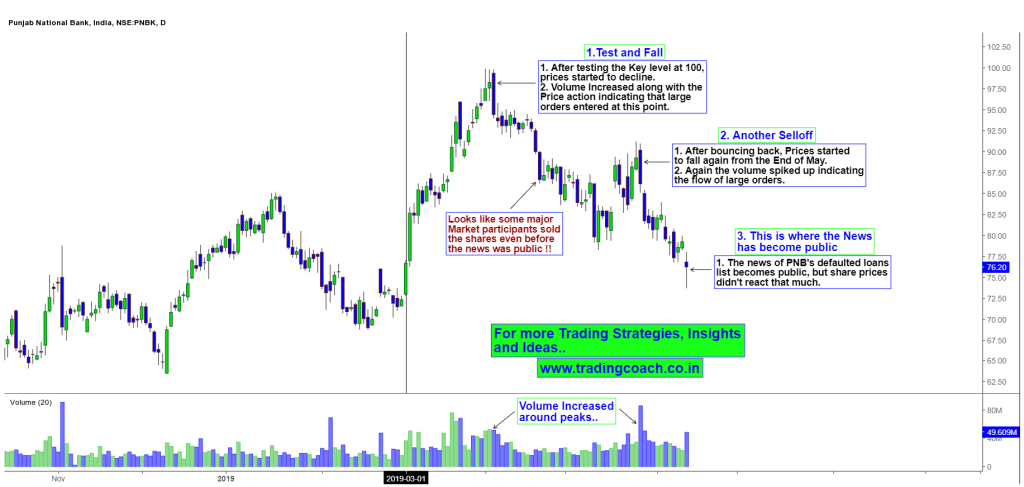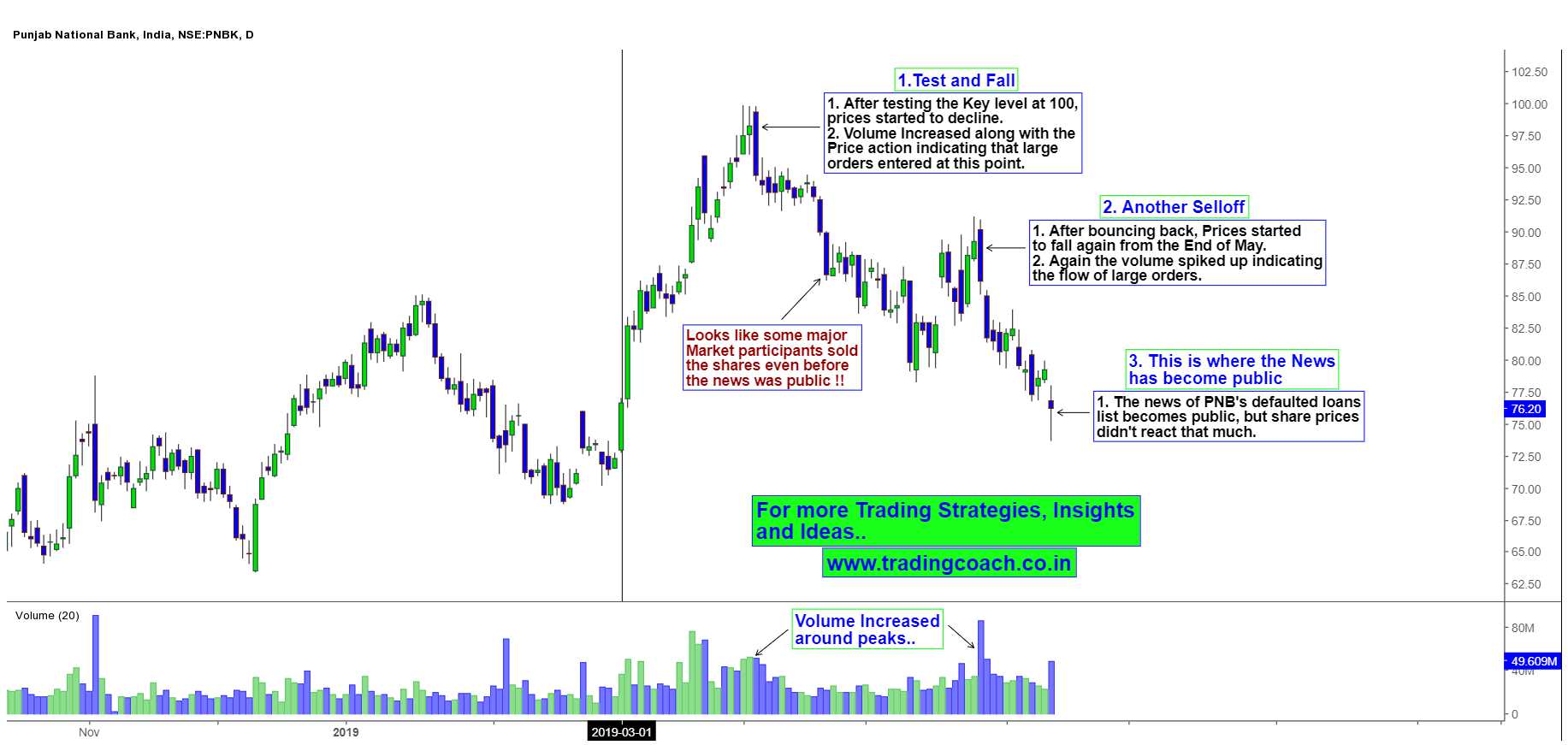Stock market is a beautiful combination of Irrationality and wisdom of the crowd. Sometimes markets foresee what’s about to come and reacts to it beforehand. Professional traders often quote a phrase “Buy the rumor, sell the fact” indicating the tendency of market prices to react before even any important news becomes public. Most of the time share prices react beforehand to news and then price action moves against the expectations of majority.
That’s what happened with PNB, one of the major public sector banks in India. In a recent report, Punjab National Bank has admitted of defaults worth around 25000 Crores to 1,142 big and small borrowers all over India. Country’s second largest Public sector bank created a list of all defaulters owing ₹25 lakh and above, through all its branches in all states, with the highest numbers emerging from Maharashtra, Punjab, Delhi, Chandigarh, Gujarat, Uttar Pradesh and West Bengal.
Fundamentally speaking such a huge sum of defaulted loans (If gets converted to non-performing assets) means the Bank will be sitting with a pile of NPA’s for years to come. This could be a huge drag on the Bank’s business growth and profitability for years if not decades..!
Ideally such type of news should spark a strong negative sentiment among investors and traders, share prices normally get hammered down once after such news is public. But if you look at the PNB Daily chart, Price Action shows a different picture altogether. Share prices are already declining since the beginning of April and market prices didn’t react after the news.
PNB Share prices on Daily chart – Markets have already foreseen the Negative news!
What’s going on? – It’s the “Pricing in effect”
The market has already priced in the impact! After reaching to the highs around 100, Share prices declined all the way till 80.00. Then in the Mid-May share prices bounced back a bit, but again started to fall near the end of May. The entire fall we saw in share prices is because of market participants anticipating and pricing in the negative news beforehand.
Looks like the market has already foreseen this, But How? In market, there are different types of Market participants starting from normal retail traders to well-informed institutional players and Insiders. It’s the aggregate buying and selling activity of all these market participants is what determines the price.
In many cases – Promoters, Institutional players and insiders will have a better knowledge about the company than the general public, so when these players acquire or offset their positions based on some prior research and information it can reflect and cause share prices to react before even the news is public. So that’s the reason sometimes share prices move sharply prior to news, announcement or an event.
This is what the father of technical analysis Charles Dow meant when he said “Price discounts everything”. All information whether past, current and even future is discounted into the markets and reflected in the prices. It’s important to note that this doesn’t mean that markets have the ability to predict future events. Rather, it means that over any time, all factors such as those that have happened, are expected to happen and could happen are priced into the market. Some professional traders generally call it as “Pricing in effect”
So that’s what happened with PNB Share prices. It declined before even the news, but once the news was public there’s not much reaction in share prices, because the movement is already over. Next time when you see market prices reacting beforehand to news and moving in the opposite direction after news, don’t be surprised, instead call it as pricing in effect!

